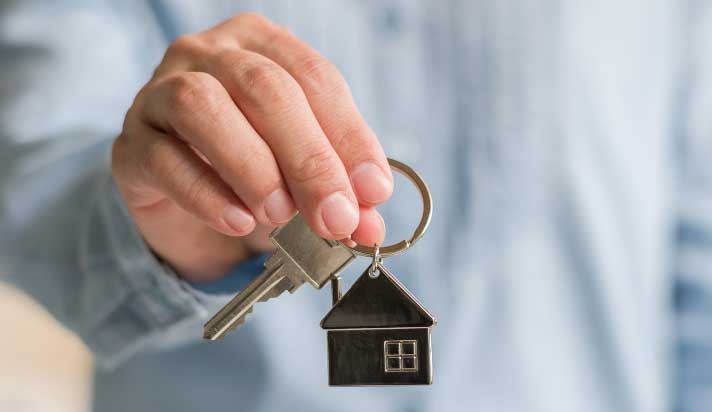After a tenant has been chosen it is important that both of you communicate clearly to ensure that you and the tenant understand both your rights and your responsibilities and are therefore fully protected in the case of something going wrong. If something does go wrong, having this initial paperwork helps to ensure that the problem can be resolved. This is The beginning of the tenancy.
Three key things need to be considered at The beginning of the tenancy:
- Residential Tenancy Agreement
- Deposits
- Condition Inspection Report
These points will be outlined in further detail below.
Tenancy Agreements

Any rules that you would like to include in your tenancy must be in your agreement. In the province two tenancy agreements are most commonly used: one that covers the basics, provided by the RTB, and one that is more comprehensive, providing information about most situations that may occur, supplied by LandlordBC.
All necessary fields must be filled out when completing a form, as leaving something blank or without a check or signature can cause problems in the future.
For example, if you are completing a Rental Unit Description you must ensure that you only check the boxes indicating what you intend to include in the rent as if you make an unintended selection you will then have to provide this service or facility to any tenant(s).
Standard vs Material Terms
A standard term means a term outlined in the regulations as required under the legislation.
A material term means a term listed in the agreement that either is or is not a standard term. It is important to note that breaching a material term is grounds to end the tenancy.
Rent and Fees
Ensure that the section referring to additional occupants is filled out. If an additional occupant moves in the clause states that rent will increase by this pre-agreed upon amount with the landlord’s consent (which is outlined in a later clause).
Smoking (not a standard term, not included in RTB Agreement)
As the landlord of the rental property you must choose the smoking rule that you would like to have. Both the tenant and landlord must initial the agreement in the boxes provided next to the option selected by you.
Pet Agreements
Deciding to allow pets on your property is at your discretion as to the landlord, and if you do allow your tenants to have a pet it is advisable to complete a Pet Agreement with them. A Pet Agreement outlines the terms of the agreement in relation to the pet(s) you have allowed. A Pet Agreement specifies the specific pet allowed, ensuring that only permission is given for that pet.
Other
You may add other rules to the agreement where necessary, however check the agreement to make sure you are not adding rules that are already on the agreement or rules where the clause is not enforceable.
Deposits

There are two types of deposits that can be required by a landlord upon the commencement of a tenancy. Both will be outlined below.
Security Deposits
There are a number of important points to be aware of about security deposits.
What is a security deposit?
Landlords are allowed to require a security deposit under the Act. You may charge up to one-half month’s rent for a security deposit. Application deposits are prohibited as the security deposit is considered the establishment of a tenancy.
If the tenants have any outstanding debt, the security deposit can be used to recover this.
When should security deposits be accepted?
You should not accept a security deposit unless you are sure that you will accept the application of the tenant offering the deposit. Some tenants will try to give you a deposit immediately to secure the tenancy – be aware of this and do not accept the deposit unless you are going to accept the tenant. A security deposit should be accepted after you have reviewed a potential tenant’s application and checked their references. The security deposit should also be accepted at the time the agreement is signed.
When does the tenant need to pay the security deposit?
The tenant must pay the security deposit within 30 days of signing the agreement. If the tenant does not pay the security deposit it may result in them being served an end of tenancy notice.
Pet Deposits
There are a number of important points to be aware of about pet damage deposits.
What is a pet deposit?
If you have allowed pets on the property you are also allowed to require a pet damage deposit, which is a total value and cannot be charged per pet. If a tenant obtains a pet during the course of their tenancy, you may require a pet damage deposit at that time.
What can a pet deposit be used for?
It is important to note that the pet damage deposit can only be used in the reparation of pet damage.
Condition Inspections

Condition inspections are both a legislated requirement and important way of protecting your interests after entrusting your property to your tenants.
At both the commencement and completion of a tenancy, and before the tenants have moved into the property, a Condition Inspection Report must be completed. It is advisable to schedule the initial inspection on the morning of the tenants’ move, as their belongings will not yet be present on the property. The tenants will usually be given the keys to the rental property at the end of the inspection. A copy of the initial Condition Inspection Report must be provided within 7 days of its completion.
Scheduling these inspections is your responsibility as landlord and the tenant must be present for the inspections. The form that you use must comply with the regulation. There is no requirement to use the government form.
Being as detailed as possible when inspecting the rental property is very important, as failure to do so means that you are not able to claim for any damage to the property.


